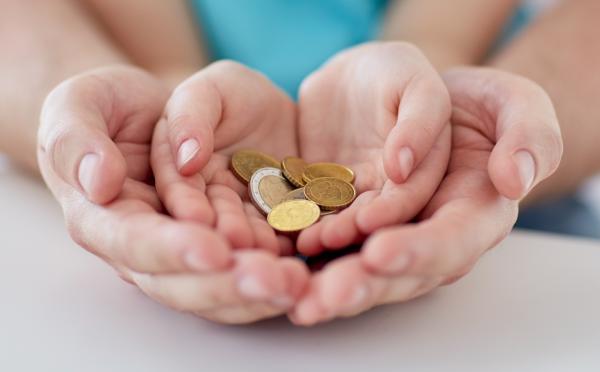
At last month’s Spring Budget, the Chancellor announced changes to the High Income Child Benefit Charge (HICBC). The reforms are expected to save 170,000 families from having to deal with this perennially unpopular part of the tax system, and allow a further 315,000 families to keep more of the Child Benefit they receive each year, or to receive it where they would previously not have benefited.
The HICBC was introduced in 2013 and results in those on ‘high’ incomes having to repay some or all of the Child Benefit received by their household each tax year via Self-Assessment. This applies even if the Child Benefit is claimed by their partner, and even if the couple are not married or in a civil partnership. We've made a short video about the HICBC, available on YouTube or through the videos section of the ATT website.
Until 5 April 2024, the HICBC applied where the higher earner in a household had adjusted net income of more than £50,000. By the time their income reached £60,000, the full amount of Child Benefit received in the year had to be repaid via the HICBC.
From 6 April this year, the HICBC only applies where the higher earning parent/guardian in a household has adjusted net income of £60,000 or more, and the rate at which the HICBC claws back Child Benefit has been halved. For the current tax year onwards, £1 of Child Benefit will be repayable for every £200 of income over the £60,000 threshold, so full clawback won’t apply until the higher earning parent or guardian’s income reaches £80,000.
These changes mean parents who have previously opted out of Child Benefit payments may want to consider restarting their claims. Parents who have never claimed Child Benefit should also consider doing so, whether or not they will be affected by the HICBC under the new rules.
Why claim Child Benefit?
Child Benefit provides financial support to families – for the current tax year the rates have increased to £25.60 per week for the first child, and £67.80 for each additional child.
In addition, claiming Child Benefit means the child will be issued with a National Insurance number once they reach age 16. It also provides entitlement to State Pension credits if the Child Benefit is claimed by a parent or guardian who has little or no income of their own.
New Child Benefit claims
New claims for Child Benefit can be made online, or via the HMRC App, and are automatically backdated by three months (or to the child’s date of birth if later).
Claims made in the current tax year (2024/25) will be treated as if they had been received this tax year, even if they include backdated payments which would have created a HICBC liability in the previous tax year.
For instance, if an employee earning £60,000 makes a new Child Benefit claim in April 2024, it will automatically be backdated by three months. The employee would normally incur a HICBC liability for the tax year ended 5 April 2024 since their income exceeded the £50,000 HICBC threshold which applied in that year. However, since the backdated payments will be treated as if they were received in 2024/25, no HICBC liability arises as the employee’s income is under the new £60,000 income threshold.
Existing claimants
From the 2024/25 tax year onwards, anyone with adjusted net income of over £80,000 will repay all the Child Benefit they receive . Rather than choosing not to receive the payments at all, it is generally preferable to claim the benefit but opt out of receiving payments. This avoids the need to deal with the HICBC, whilst retaining the benefits outlined earlier.
Employees with adjusted net income over £50,000 may previously have opted out of receiving Child Benefit payments in order to avoid dealing with the HICBC. Thanks to the newly-increased HICBC threshold, anyone with adjusted net income of up to £60,000 would be well advised to restart their Child Benefit claim as they should not have to worry about HICBC any more.
For those with income between £60,000 and £80,000, restarting Child Benefit payments may still prove beneficial, as the reduced clawback rate means they will retain at least part of the Child Benefit received. Individuals in this income bracket who are the higher earner in their household will then need to file Self-Assessment tax returns each year to pay the HICBC.
This article reflects the position at the date of publication shown above. If you are reading this at a later date you are advised to check that that position has not changed in the time since.
We regularly publish articles on a range of tax and wider topical issues which affect employers. If you wish to subscribe to our monthly Employer Focus e-newsletter, please contact us.















